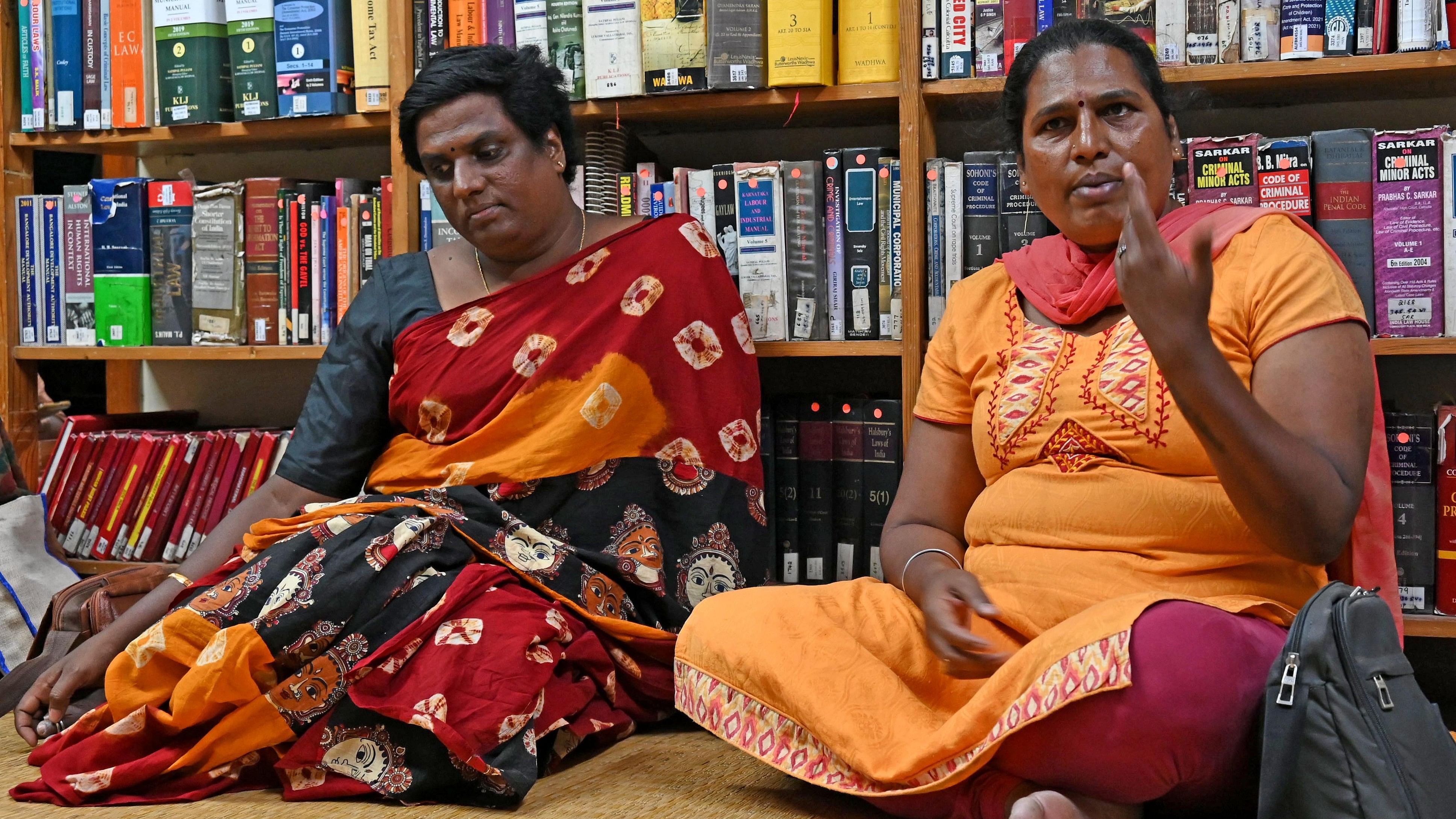
Activists Uma and Chandini talk about housing and livelihood at Alternative Law Forum on Saturday.
Credit: DH Photo/Pushkar V
Bengaluru: It is often an uphill task for people from transgender communities to buy or rent a house in a good locality in the city due to the discrimination associated with their identity. While a lot has changed over the years, thanks to strong activism, the community continues to grapple with issues related to inclusion among the rest of society.
During a discussion held at Alternative Law Forum on Saturday, transgender and human rights activists Chandini and Uma highlighted the continued struggle of their communities, particularly when it comes to housing and livelihood, while acknowledging the differences within their own communities.
Recounting her early years in Bengaluru, Chandini, who came to the city in 2002 for Hijra Habba, decided to make a life here despite the shared experiences of social abjection, which were common to transgender communities in the past. Over the years, however, it has changed to a significant extent, she says.
“Sex work and begging have been very common in the early years, when we came to Bengaluru after facing severe rejection from our own family members. That is one of the reasons why nobody wanted to rent their houses to us. But today, with we have the privilege of getting education and we do activism,” she said.
However, she thinks that a dedicated fight for a common cause and unity within the community is lacking. Uma continued the dialogue and added that a 5% reservation for individuals from the transgender community is also considered of paramount importance. She also said that people in power have a vague and ambiguous idea of the thin line between the sexual and gender identities of the community, which hinders the process of lawmaking.